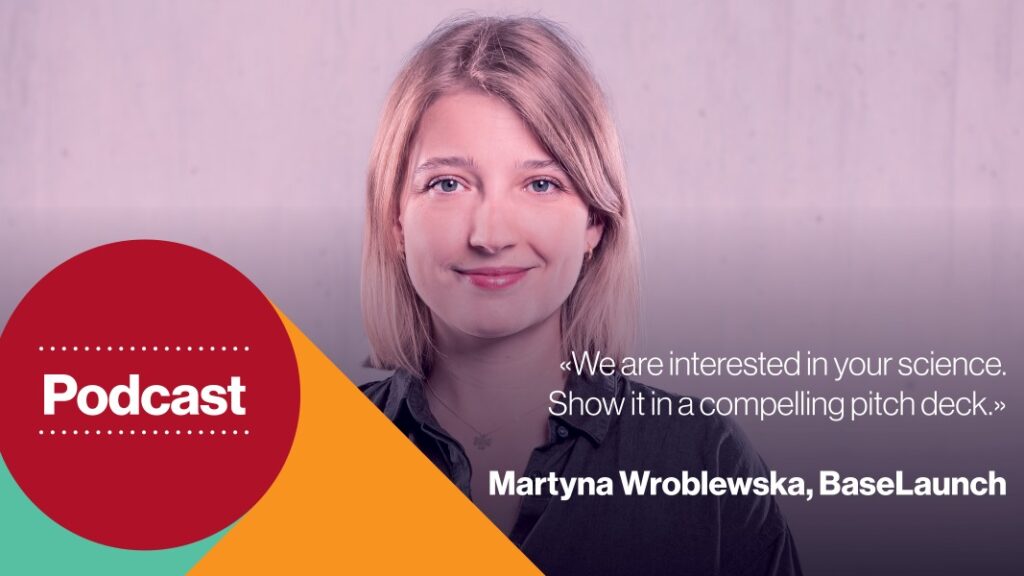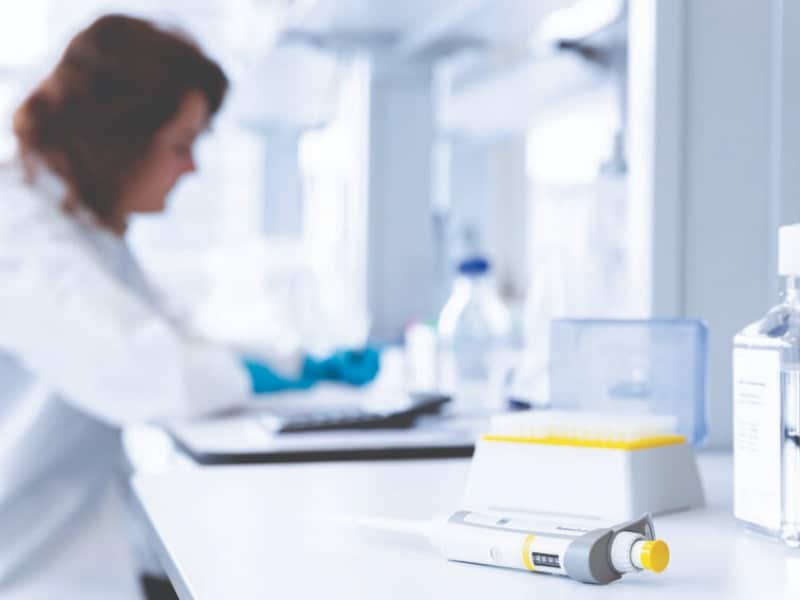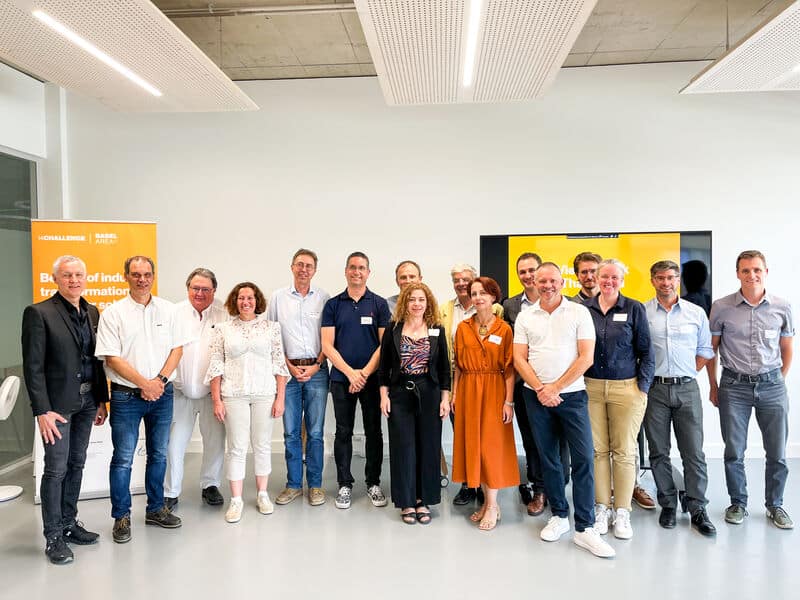
| News
“The Basel region is very advanced in healthcare innovation”
02.04.2019
A new master’s degree at the FHNW University of Applied Sciences and Arts Northwestern Switzerland aims to prepare the next generation of professionals in the life sciences industries: Students in “Medical Informatics” are trained to apply the latest technologies during projects for the medical and pharmaceutical industries. Professor Enkelejda Miho from the Institute for Medical and Analytical Technologies at FHNW is confident that the combination of life sciences, informatics and business brings forward a desired new profile of professionals.

Enkelejda Miho, Professor of Digital Life Sciences
BaselArea.swiss: Enkelejda, do you think that the traditionally trained scientist who adds a technological perspective is the new normal?
Enkelejda Miho: Drug discovery is a large area. There are fields that will remain quite traditional while branches like real-world data and digital clinical trials are changing rapidly. Scientists cannot analyze their large-scale data with the same means used in former years. Further, a multitude of tools are ready to use today. The field is in the process of finding out how to combine these tools in order to bring drugs faster to the market. Applying cutting-edge technology to answer scientific questions is an integral part of the job as a scientist. We hear from pharmaceutical companies that the technologically savvy scientist is a desired profile, alas not necessarily the profile that is available on the market. Education has to catch up with what is happening in the real world.
What changed in the understanding of healthcare?
Healthcare developed like every other field: We observed slow process over centuries. Then suddenly, technology brought things forward abruptly. Knowledge in health was always centered on organs, which helped to reduce complexity. You had the cardiologist, the pneumologist, the neurologist who tried to understand one problem at a time. Knowledge was dissected. This is changing massively.
How so?
New technologies are leading towards faster diagnostics and therapeutics. For example, we can train an algorithm to detect a tumor. The machine thus supports the specialized doctor in upscaling the quantity of patients he or she can see and diagnose. The first step is to apply what we know to accelerate diagnostics and therapeutics based on larger experience and faster knowledge processing. The second step is integration of knowledge from different systems. There are many different technologies. Now we have to ask how to apply them adequately. Integration of knowledge is key.
Which role does Artificial Intelligence play in this?
Instead of asking one question at a time, AI allows to integrate not only health data but also other information like the times you went to the doctor, the prescribed therapies and symptoms as well as social and environmental data. AI helps to integrate all that to support us making better choices and better diagnostics so people don’t go for the wrong therapy or suffer treatments that are not specific to them.
Are we prepared for healthcare innovation?
We are on a very good way. The first challenge is standardization. There is no aligned idea of which method to use when and how they compare – there are just so many. Research groups, labs and pharmaceutical companies could do more in the precompetitive space so we don’t make the same mistakes all over again. We could learn a lot from software development where sharing is common. The second challenge is the bias that we introduce to the algorithms. Researchers have to think thoroughly about matching the right question with the right data set – a computer is not able to do that. We need researchers who are aware of the potential pitfalls of applying AI and machine learning to healthcare.
How far are we in Basel?
The Basel region is very advanced compared to other regions. We have major players, we have a startup environment and we have major research institutions and applied institutions like University of Basel, ETH, FHNW and the Friedrich Miescher Institute. All the components are here. I believe there is need for more cross talk between the stakeholders, though, instead of trying to bring the whole machinery forward by oneself. BaselArea.swiss and DayOne help as they bring different perspectives together. There could be more dedicated resources to spark the interaction, though. This would also help to retain the talent we need to bring this field forward.
Which difference does the new Master in Medical Informatics make?
We fill a gap. Talking with the industry, we discovered that everyone is moving into applying the new technologies like machine learning and AI. This requires specialized knowledge. On the one hand, you need to know about chemical molecules and biology because you need to understand the data you are analyzing. On the other hand, you need knowledge in programming and in the mathematical framework of applying machine learning. So, a broad knowledge is required to apply an exact part of data and an exact method of machine learning to a very specific project. You need a background of everything to be a master of one specific question. This is the challenge that other institutions in Switzerland and in the European countries have not tackled yet.
What is your approach?
The FHNW is known for being an applied institution to the latest questions. We are giving the students diverse enough background in life sciences, in informatics and business and then bringing these students to real life projects from pharmaceutical companies and hospitals. If you know the drill, you can apply it for another question as well – that is the ambition. Our students will deal with the diversity of projects, with databases, with citizen-patients, with classification and automation. How can you automatize image analysis in the pharma industry or in the hospital? How can you be of support to regulatory agencies, knowing the latest trends and pitfalls? We are the first with this twist of educational purpose. We are training the new generation of professionals, considering the digital transformation in the application field.
We are not talking about data ethics?
You cannot escape the ethics. It’s the most important question we face in digital health. But sometimes you need to walk the line to understand what is needed in terms of ethics and data privacy. We try to address these questions in the frame of specific projects. Discussion is great for preparing the ground and for creating awareness. We are more about the doing.
What students do you expect?
We wanted to give FHNW trained students the possibility to get into cutting-edge projects. What we experience is that companies are also very interested in the Master program. This program connects the life sciences and the business world based on the informatics ground. Together with Prof. Dr. Knut Hinkelmann, Head of the Master of Science in Business Information Systems at FHNW, we are producing a profile that understands the needs of science but that can actually apply it with regard to cybersecurity, data privacy and business applications. We train the people in the best tradition of the Fachhochschule to get the job done.
There are different initiatives in digital health education from ETH, University, and Swiss Tropical and Public Health Institute, too. How do you value these efforts?
These efforts are valuable and relevant for our community. I don’t see any overlap in these programs. While the focus at the FMI, ETH and University of Basel is more research driven, here at the FHNW we are going for hands-on application-driven education. We are in collaboration with the University of Basel, especially the Innovation offices, and with FMI and ETH as well. At last, it’s a community effort.
About Enkelejda Miho
Enkelejda Miho is professor at the FHNW University of Applied Sciences and Arts Northwestern Switzerland, School of Life Sciences and serves as Dean of the Master of Medical Informatics. She is head of the Laboratory of Artificial Intelligence in Health and her research focuses on the use of computer science and artificial intelligence in drug discovery and personalized medicine. As a pioneer at ETH Zurich she created innovative methods to analyze large-scale immunogenomics data and founded the ETH spin-off aiNET. She received a PhD in Biotechnology from the ETH Zurich and a Diploma of Advanced Studies in Pharmaceutical Medicine and Medicines Development from the University of Basel. She gained her Master’s degree in Medicinal Chemistry and Technology, Pharmacy from the University of Bologna.
Learn more about the Master in Medical Informatics at the info event: Wednesday 03.04.2019, 17:00–20:00, FHNW (09.W.08), Hofackerstrasse 30, 4132 Muttenz. Register here.





